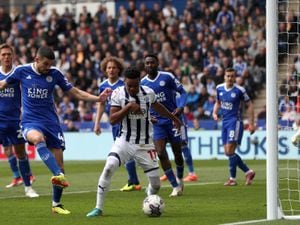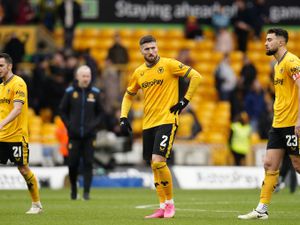Matt Maher: Money is still talking at the top and bottom
A couple of developments this week highlighted the chasm which exists between football’s haves and have-nots.
The first concerned Alexis Sanchez who, at the time of writing, was on the verge of ending a somewhat disastrous two-and-a-half year stay at Manchester United.
When Sanchez was signed from Arsenal in a swap deal with Henrikh Mkhitaryan he was considered among the best players in the Premier League yet the transfer must now be filed among the worst in the history of English football.
In 45 appearances for the Red Devils, the Chile international netted just five goals, all while on wages of around £560,000-a-week. Before you go rushing for a calculator, that means Sanchez’s goals have cost around £4.57m each. Little wonder United are so keen to get him off their books and away permanently to Inter Milan, even if that means paying off a portion of his remaining contract.
Incidentally, £560,000 is around the sum the average League One player can expect to earn over five years if proposals for a salary cap in the division are rubber-stamped on Friday.
Under the plans, clubs in the third tier would be limited to a total wage bill of £2.5m, while the cap in League Two (clubs are due to vote on Thursday) is likely to be set at around £1.5m. Clubs in the Championship have discussed a somewhat higher limit of £18m.
The cap is seen as another means of controlling costs at a time when many in the Football League are feeling the pinch, after five months of not kicking a ball.
Support for the proposal is far from universal and there is no guarantee it will be approved. Critics claim any restriction on spending should relate to a club’s revenue, while there is always the prickly question of just how effectively a salary cap could be enforced? As has often proved the case with Financial Fair Play regulations, there is always a loophole somewhere.
Still, it is at least a tangible attempt to find a solution for the growing financial headache facing clubs in the lower leagues. Previously, the standard response has been to do nothing and then react with surprise when a club falls into crisis. Now that is simply not an option.
The fact football has been so prominent on TV screens over the past seven weeks might have created the impression of a sport getting firmly back on its feet but the reality is rather different. More than half the clubs in the Football League have not played a match since early March and the route toward anything approaching normality is lengthy.
Yes, a start date for the season has been set but there are guarantees on when supporters will return or in what capacity. The government’s decision last week to cancel the latest pilot schemes will have been particularly concerning for Shrewsbury, Walsall and their rivals in Leagues One and Two, who all depend on gate receipts for the bulk of their income.
The truth is we are still a long, long way from understanding what the full impact of the pandemic on sport will be.
Even the Premier League is unlikely to find itself immune. Much as it might often appear so, football does not exist in a bubble and clubs will feel the impact through sponsors who suddenly find investing in the sport is no longer a priority. They might also feel it through the broadcasters who, just a few months from now, will be bidding for the next TV deal during a period of significant uncertainty.
Arsenal, whose players agreed wage cuts earlier in the pandemic, yesterday announced they will be making 55 staff members redundant.
“It is now clear that we will be facing more significant and longer-lasting reductions in our revenue than we all hoped,” the Gunners said in a statement.
Which would be fair enough, were it not for the fact they are still pressing ahead with plans to sign Brazilian forward Willian on a lucrative contract, while also trying to down captain Pierre-Emerick Aubameyang on an improved deal.
At least Arsenal were up front about it, their statement concluding: “These proposed changes are ultimately about ensuring we have the resources to return to competing effectively at the top of the game here and in Europe.”
It is true the fate of a club’s staff, whatever their department, will always depend to an extent on performance on the pitch. Even so, the Gunners actions will no doubt stick in the craw of many clubs further down the pyramid who have explored every avenue and made every sacrifice to keep their non-playing staff in work.
Doubtless there were also many in the sport rolling their eyes at the notion Manchester United, a club who have done more than most to aid transfer fee inflation (Wednesday marked the one-year anniversary of Harry Maguire’s £80m move from Leicester) protesting the “immorality” of Borussia Dortmund’s £108m asking price for Jadon Sancho.
A cynic might suggest they are merely using the impact of the pandemic as a negotiating tool and perhaps a few weeks from now that will be proven the case. One would hope not but chief executive Ed Woodward does have form.
Yet for now, let us give them the benefit of the doubt. If nothing else it seems certain the current window will be very much a sellers market.
Transfers which appeared almost certain to happen back in February are now far less so. On a local level there is no better example than Jack Grealish, who was courted by United in the January window but who may now find clubs much more reluctant to pay Villa’s £80m asking price.
Villa’s survival in the Premier League means they are under no pressure to sell and though the feelings of the player will always be a factor, any club in such a position holds a relatively strong hand.
Of course, Villa may see the other side of the coin when it comes to recruiting the four or five quality additions Dean Smith wants for his squad.
Whether they be Premier League or Football League, clubs, players and everyone else in the sport will need to adjust their expectations accordingly from now on.





